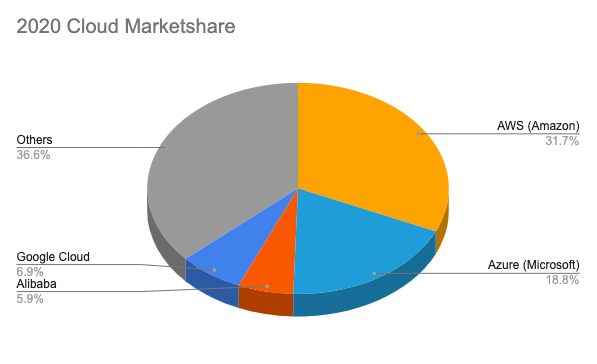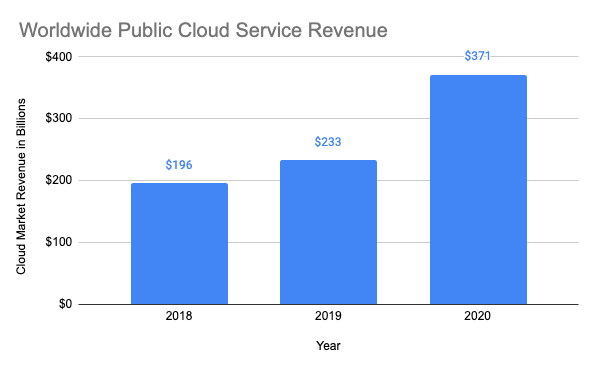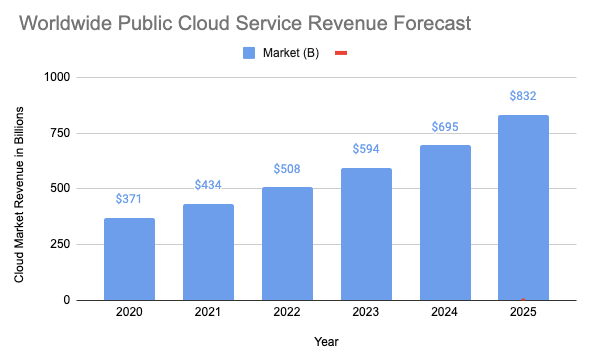I spend a lot of my time talking about AWS Managed Services and GenAI these days: it's at the heart of the services our company offers, but many savvy business people have never heard the term before. Taken literally AWS is an acronym for Amazon Web Services, but that doesn't really help to clarify what it is. Digging in a little more, AWS is a division and offering from the company Amazon (the same one many people are buying from online) and essentially boils down to selling computer time. This is all the Cloud really is; slices of time from a bank of computers that are connected to the internet. But this simple idea is big. Really big. So big in fact that AWS is by far the most profitable division of Amazon delivering the bulk of the company's profits.¹
How AWS Cloud works
The secret to AWS's success is based on the core of how the internet works. All of us are accessing websites (you in fact are reading this article) and those websites, the information contained and the code that tells computers how to display the content are hosted on machines called servers. Servers have always existed, but until recently they were generally bought and paid for individually. This was an expensive process as servers cost thousands of dollars and needed to be maintained and monitored 24 hours per day, or as long as you wanted your server to be available. With AWS individual servers have been replaced by "the cloud" - or collections of servers where instead of buying machines, people who want to deliver content over the internet subscribe to server capacity. Essentially, AWS takes care of the machines and sell slices of the computing power they provide to many, many customers. This website is an example of this process, as is it being delivered to you from the AWS cloud.
The Bigger (And Smaller) Picture
While selling slices of computing power may not seem all that revolutionary, we have now reached a point where the cost of serving data (from AWS or other cloud providers) isn't measured in the thousands of dollars per year, or even hundreds of dollars per month; instead this service can be paid for at the pennies per millisecond scale. This change has had a profound impact on how we in the industry think of websites and applications, storage of data, and hundreds of other things and finding vendors skilled in AWS managed services is becoming more and more important. In short: the cloud is changing the way that technology can be applied at an astounding rate.
Origins of AWS & the Cloud
For those interested in the history of AWS Cloud and "the cloud" more broadly, it's important to note that AWS has only been publicly available since March of 2006. This was the same year that the term "cloud computing" was coined by the then CEO of Google, Eric Schmidt. AWS was started by Andy Jassy back in 2003 with a team of 57 people.
How much of the Cloud market is AWS?
From its humble origins AWS Cloud has grown to employ more than 25,000 people directly - and many, many more via other technology and consulting partners. AWS is currently the leader in the cloud market with a little over 31% of the marketshare.² This is actually down, as a percentage of the market from the over 47% of the market AWS owned in 2018, as other providers include Google Cloud and Microsoft Azure as well as many other smaller providers have continued gains:

But this needs to be taken in context. Looking at IT more broadly AWS is currently on track to displace Oracle as the second biggest enterprise software company³ and the cloud market has grown 78% in two years from $196B in 2018 to $371B in 2020:

Perhaps more shockingly, we aren't anywhere close to being done with the growth. Research and markets is predicting a whopping 124% increase over the next five years⁴ to a total market size of $832B globally:

Summary
The first cloud provider to market, and the current leader, AWS is transforming how technology is built. Their continuing investments and continued release of new feature will likely keep them in the lead for the foreseeable future. With this overview hopefully the next time someone mentions AWS you'll not only know what the acronym means, but be able to drop a few facts and tidbits that even people who work with it in their day-to-day are unaware of.
Sources